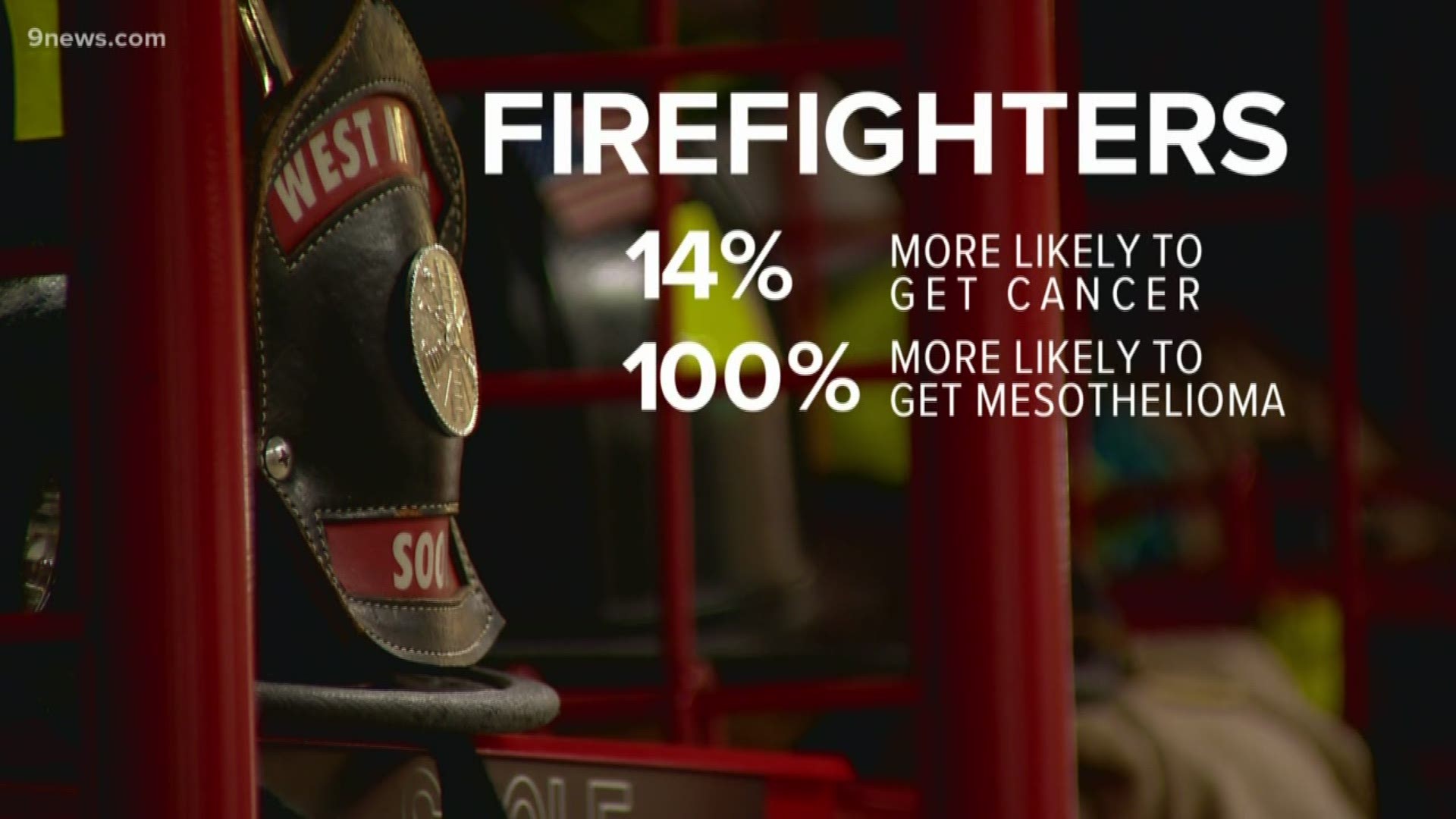LAKEWOOD, Colorado — Fire departments are changing protocols in an attempt to protect firefighters from an increased risk of cancer.
On Monday, family, friends and the community gathered to say goodbye to West Metro firefighter Dan Moran, who passed away Feb. 7 after a three-year battle with cancer. His cancer was believed to be job-related.
The International Association of Firefighters says firefighters are 14% more likely than the rest of the population to get cancer. The same study shows they're even more likely to get specific types of cancer. Firefighters are 100% more likely to get mesothelioma and 40% more likely to get throat cancer, for example.
“It definitely causes us to pause and think about, not just Dan, but our jobs and what we are exposed to," said Lieutenant Reed Norwood, Incident Safety Officer for West Metro Fire Rescue. "And maybe take that extra time to clean your stuff a little better or not cut a corner when it comes to safety and exposure.”
Today, the department’s truck bays are pristine.
When a vehicle rolls in from a call, hoses are attached to exhaust pipes to keep gasses from getting trapped in the garage. If the crew is just back from a fire, their gear is bagged up on scene and gets sent directly to an extractor for a deep clean.
It’s one of several methods now used by many departments to shed carcinogens and prevent cancer.
“Years ago, the badge of courage was having the dirtiest helmet, the most burnt up gear, and that was really just a backward way of thinking,” Norwood said. “Now that we are seeing how many of our firefighters are coming down with cancer, it’s paramount that we address it head-on.”
Norwood said he responds to every fire in his shift to ensure fellow firefighters have the tools they need to protect themselves. The gear and protocols have improved in recent years to reduce contaminants from hitting the skin or from being inhaled.
After treating the scene, firefighters then use a bucket of water, a scrub and dish soap to wipe everything down before bagging up bunker gear. Sanitation wipes are used for an immediate cleansing. Then, crews are temporarily taken out of service to allow time to take a shower back at the station.
“It’s a dangerous profession and I don’t know that there’s a way to totally remove all that risk," said Norwood. "But every day we’re looking at risk, prioritizing risk and we’re figuring out how to minimize that.”
Beyond the job, laws have changed recently to address the issue.
In Colorado, firefighters are presumed to have cancer because of their work. Previously, those with cancer often endured legal battles with insurance companies over workers' compensation claims. Three years ago, a trust was created, allowing departments to pay in and provide immediate funds to those who are sick.
SUGGESTED VIDEOS | Local stories from 9NEWS

